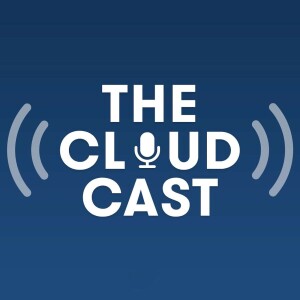
Solomon Hykes (@solomonstre, Co-Founder @Dagger_io) talks about the evolution of the container industry, the advantages of Dagger and the abstraction of CI/CD pipelines.
SHOW: 829
CLOUD NEWS OF THE WEEK - http://bit.ly/cloudcast-cnotw
NEW TO CLOUD? CHECK OUT OUR OTHER PODCAST - "CLOUDCAST BASICS"
SPONSOR:
- See what graphs can do for you at Neo4j.com/developer
SHOW NOTES:
- https://dagger.io/
- InfoQ Article on Dagger
- Daggar and GPTScript for AI (video)
- Tech Crunch Article
- Solomon’s first time on The Cloudcast - Episode #66
Topic 1 - Welcome back to the show. We’ve spoken a number of times over the years and we’ve been overdue to catch up. For the few listeners out there who might not be familiar, give everyone a quick intro and your background with Docker and containers prior to Dagger.
Topic 2 - Dagger has been around for a few years, coming out of stealth in 2022. If I understand Dagger correctly, it is a declarative model to abstract away CI/CD pipelines. What problem are you trying to solve?
Topic 2a - Anytime you add an abstraction layer, you potentially add overhead and complexity. What are your thoughts on this?
Topic 3 - Let’s go back to containers quickly. How has Containers as an “industry” changed over the years? How does that relate to what you are trying to do with Dagger?
Topic 3a - What lessons learned from Docker and even back to dotCloud days do you want to bring forward with Dagger?
Topic 4 - What metrics are organizations using to measure the performance and success of Dagger implementations? Is it velocity (number of deployments)? Reduction in friction?
Topic 4a - I get the advantage on the Dev side of DevOps, what’s in it for Ops?
Topic 5 - Dagger has three components, Dagger Engine, Dagger Cloud and Dagger SDK. Walk everyone through the offerings at a high level.
Topic 6 - Where and how does Daggerverse fit into this?
FEEDBACK?
- Email: show at the cloudcast dot net
- Twitter: @cloudcastpod
- Instagram: @cloudcastpod
- TikTok: @cloudcastpod
More Episodes
 2024-11-06
2024-11-06
 2024-10-26
2024-10-26
 2024-10-23
2024-10-23
 2024-10-20
2024-10-20
 2024-10-16
2024-10-16
 2024-10-09
2024-10-09
 2024-10-06
2024-10-06
 2024-10-02
2024-10-02
 2024-09-29
2024-09-29
 2024-09-22
2024-09-22
 2024-09-18
2024-09-18
 2024-09-11
2024-09-11
 2024-09-08
2024-09-08
Create your
podcast in
minutes
- Full-featured podcast site
- Unlimited storage and bandwidth
- Comprehensive podcast stats
- Distribute to Apple Podcasts, Spotify, and more
- Make money with your podcast
It is Free
- Privacy Policy
- Cookie Policy
- Terms of Use
- Consent Preferences
- Copyright © 2015-2024 Podbean.com





